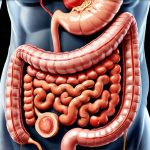Enzymes are often described as the workhorses of our bodies, essential for virtually every biochemical process that keeps us alive and functioning. From digesting food and absorbing nutrients to building tissues, detoxifying the system, and even thinking clearly, enzymes play a critical role in maintaining overall health. As we age, or due to various lifestyle factors, our natural enzyme production can decline, potentially leading to digestive discomfort, reduced energy levels, weakened immunity, and accelerated aging processes. However, understanding how to support your body’s inherent enzymatic capabilities naturally is key to thriving long-term. This isn’t about replacing enzymes (though supplementation has its place for some), but rather optimizing the conditions within your body that allow it to create and utilize them effectively.
Many people are unaware of just how integral enzymes are to daily life, often associating them solely with digestion. While digestive enzymes – amylase, protease, lipase – are crucial, enzymatic activity extends far beyond the gut. Enzymes facilitate countless metabolic reactions, impacting everything from hormone production and nerve function to cellular repair and DNA synthesis. A deficiency in specific enzymes can manifest in numerous ways, making it challenging to pinpoint the root cause without careful consideration of lifestyle and dietary habits. Optimizing enzyme levels isn’t a quick fix but a holistic approach focusing on providing the building blocks and supportive environment for your body’s inherent enzymatic processes to flourish.
Dietary Strategies for Enzyme Support
A cornerstone of maintaining optimal enzyme levels is, unsurprisingly, diet. The foods we consume directly impact our body’s ability to produce enzymes, as well as provide precursors necessary for their synthesis. Highly processed foods, lacking in vital nutrients and often containing artificial additives, can place a significant burden on the digestive system and diminish enzymatic activity. Conversely, a diet rich in whole, unprocessed foods provides the essential vitamins, minerals, and cofactors needed for enzyme production and function. Focusing on nutrient-dense options is paramount; think vibrant fruits and vegetables, lean proteins, healthy fats, and complex carbohydrates.
Raw foods are particularly beneficial because they naturally contain enzymes. Cooking, while necessary for some foods to be digestible or safe, can denature (destroy) these inherent enzymatic activity. Incorporating raw salads, smoothies with fresh ingredients, or lightly steamed vegetables can help supplement your body’s enzyme reserves. Fermented foods, such as yogurt, kefir, sauerkraut, kimchi, and kombucha, are also excellent sources of enzymes due to the fermentation process itself which creates a wealth of beneficial bacteria and enzymatic activity. These probiotics further aid digestion and nutrient absorption, indirectly supporting overall enzymatic health.
Furthermore, mindful eating is crucial. Chewing food thoroughly breaks down food particles into smaller pieces, making it easier for digestive enzymes to access and begin their work. Eating slowly allows your body to produce the necessary enzymes in anticipation of digestion, rather than overwhelming the system with a large volume of food all at once. Avoiding food combinations that are difficult to digest simultaneously (like fruit with protein) can also lessen the burden on your digestive system and optimize enzyme function.
Optimizing Gut Health for Enhanced Enzyme Production
The gut microbiome plays an integral role in enzymatic health. A healthy, diverse gut flora not only aids digestion but also contributes to the production of certain enzymes itself. When the gut is compromised by factors like antibiotic use, stress, or a poor diet, it can lead to dysbiosis – an imbalance of bacteria – which negatively impacts enzyme production and absorption. Restoring gut health should therefore be a primary focus for anyone looking to optimize their enzymatic levels.
- Probiotic supplementation: Consider incorporating probiotic supplements containing diverse strains of beneficial bacteria. However, remember that probiotics are most effective when combined with prebiotic foods (see below).
- Prebiotic Foods: These act as food for the beneficial bacteria in your gut and help them flourish. Examples include garlic, onions, leeks, asparagus, bananas, oats, and apples.
- Fiber Intake: Adequate fiber intake promotes a healthy digestive system and supports the growth of beneficial gut bacteria. Aim for 25-30 grams of fiber per day from sources like fruits, vegetables, whole grains, and legumes.
A leaky gut – increased intestinal permeability – can also hinder enzymatic function by allowing undigested food particles to enter the bloodstream, triggering inflammation and potentially affecting enzyme production. Addressing underlying causes of leaky gut, such as stress management and dietary changes, is essential for long-term enzymatic health.
Managing Stress and Its Impact on Enzyme Levels
Chronic stress has a profound impact on nearly every system in the body, including the digestive system and, consequently, enzyme production. When stressed, the body shifts into “fight or flight” mode, diverting energy away from non-essential functions like digestion. This can lead to reduced enzyme secretion, impaired nutrient absorption, and ultimately, digestive discomfort. Cortisol, the stress hormone, also inhibits enzymatic activity over time.
Implementing effective stress management techniques is therefore vital for maintaining optimal enzyme levels. These may include:
1. Mindfulness meditation or deep breathing exercises.
2. Regular physical activity – exercise releases endorphins that have mood-boosting and stress-reducing effects.
3. Spending time in nature.
4. Practicing gratitude.
5. Getting adequate sleep (7-9 hours per night).
Furthermore, identifying and addressing the root causes of your stress is crucial. This may involve setting boundaries, delegating tasks, or seeking support from friends, family, or a therapist. Prioritizing self-care and creating a balanced lifestyle are essential for mitigating the negative effects of stress on enzymatic health.
Hydration: The Often Overlooked Factor
Water is essential for all biological processes, including enzymatic reactions. Enzymes function optimally in a hydrated environment. Dehydration can lead to sluggish digestion, impaired nutrient absorption, and reduced enzyme activity. Many people are chronically dehydrated without realizing it, often mistaking thirst for hunger or fatigue.
- Aim to drink at least half your body weight in ounces of water per day.
- Pay attention to the color of your urine – pale yellow indicates adequate hydration, while dark yellow suggests dehydration.
- Incorporate hydrating foods into your diet, such as cucumbers, watermelon, and celery.
- Avoid excessive consumption of diuretics like caffeine and alcohol, which can contribute to dehydration.
Proper hydration supports not only enzyme function but also the overall health of the digestive system, creating an optimal environment for enzymatic processes to thrive. It’s a simple yet often overlooked aspect of maintaining optimal health and well-being.
It’s important to remember that these are general guidelines and individual needs may vary. Consulting with a qualified healthcare professional can provide personalized recommendations based on your specific circumstances. While focusing on these natural strategies, you empower your body to function at its best and enjoy the numerous benefits of healthy enzyme levels.


















